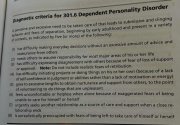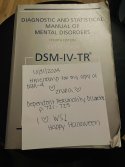- Joined
- Jan 12, 2017
- Messages
- 1,643
- Reaction score
- 10,752
Anti ligature clothing…normal. Low bed…normal,can’t throw yourself off it. Nailed to the floor so it can’t be upended to hang himself off. Lack of furniture…can’t barricade to slow down staff entering….all standard when a prisoner has stated intentWarden Galipeua has been kind of vague until now as to exactly how much time RA spent on suicide watch. He didn't even get regular clothes during those times. Nothing to sit on except the floor, toilet and a bed that's barely off the floor.






